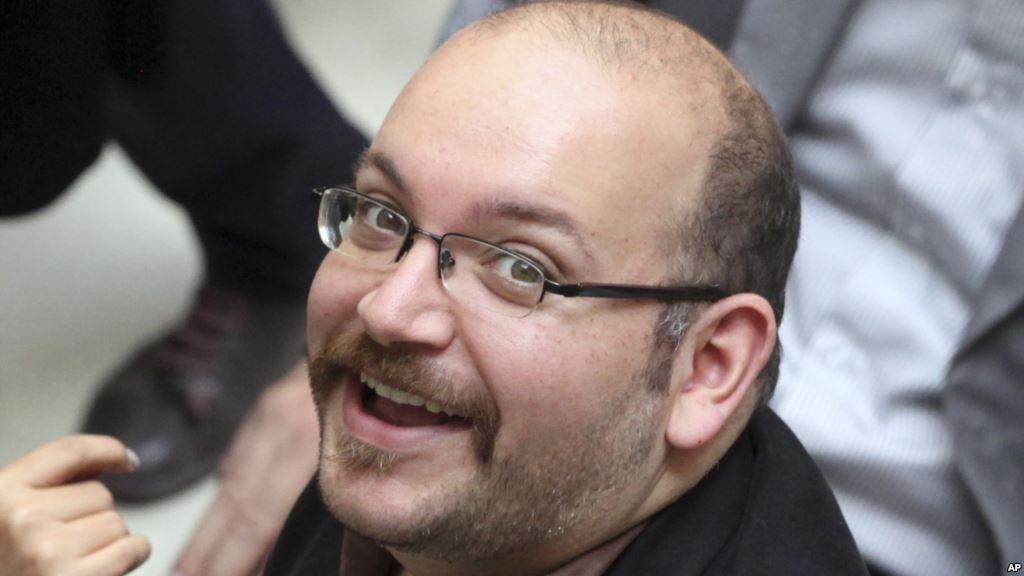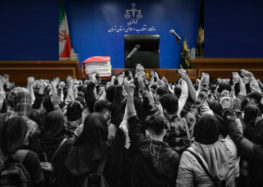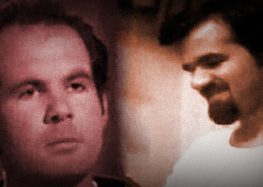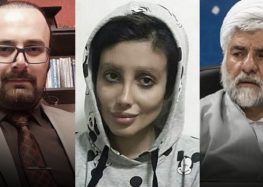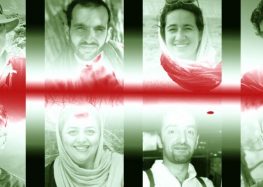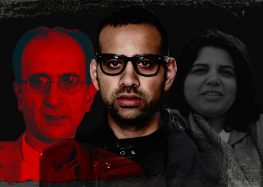Case against Rezaian Will Be Built on Little More than Forced “Confession”
Iranian Judiciary Has Long History of Relying on False “Confessions” Extracted Under Duress
October 6, 2015—Two months after the end of the trial of Washington Post reporter Jason Rezaian, imprisoned in Iran since July 2014, it is increasingly apparent that the Iranian Judiciary’s prosecution of Rezaian will rely on little more than a forced false “confession.”
The authorities have long used such confessions extracted under duress by interrogators under the guidance of Revolutionary Guard officials and then broadcast by the state-run Islamic Republic of Iran Broadcasting (IRIB),, to justify politically motivated prosecutions.
“The authorities have come up empty-handed when trying to validate their case against Rezaian,” said Hadi Ghaemi, executive director of the International Campaign for Human Rights in Iran. “So they resort to their usual tactics: force a false confession, broadcast it, and convict with impunity.”
While there has been talk among various officials and in the state-controlled media for many months regarding tapes of the ostensible “confession” by Rezaian, parliamentarians in Iran have recently intensified their calls for the broadcast of these alleged confessions.
On October 5, 2015, eleven members of the Iranian Parliament called on the Rouhani administration’s Justice Minister, Mostafa Pourmohammadi, to release tapes of “confessions” made by the imprisoned Rezaian.
In their joint statement they said, “…it is necessary to publish information and films of confessions pertaining to this American spy and mole in order to inform the public opinion.”
Iran’s Judiciary and Revolutionary Guards have a long and documented history of working hand-in-hand with the IRIB to extract forced confessions from political prisoners, often under the threat of torture, and then to publicly broadcast them in order to discredit the detainee and build support among the public for their prosecution.
Such confessions have been, without exception, recanted by prisoners upon their subsequent release, who detailed the threats and conditions under which such confessions were extracted.
In addition to the issue of a false confession extracted under duress, the prosecution of Rezaian has been marked by the denial of due process at every stage.
He was arrested on July 22, 2014, and held, for almost a year without any announced charges, five months of which were in solitary confinement. Such isolation is a common tactic used to increase psychologically pressure on a prisoner and extract a false confession.
Rezaian was also denied access to counsel for months, and then denied his choice of counsel when finally allowed representation. During his trial his counsel was not allowed to provide full and effective representation.
“If there was a single piece of evidence that Rezaian had done anything wrong, the Judiciary would have held a public trial,” said Ghaemi. “The fact that the Judiciary hides behind the disgraced use of forced confessions is one of the strongest indications of Rezaian’s innocence.”

